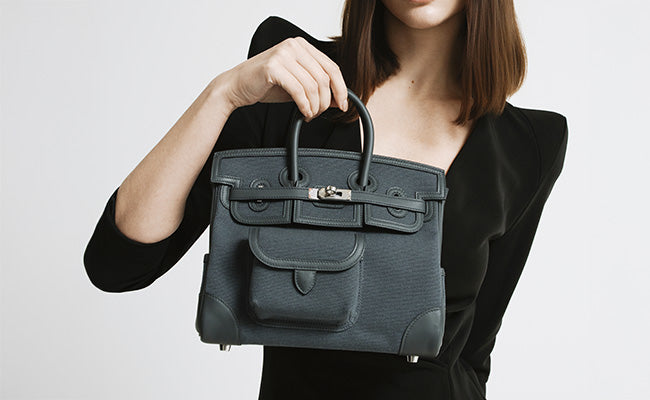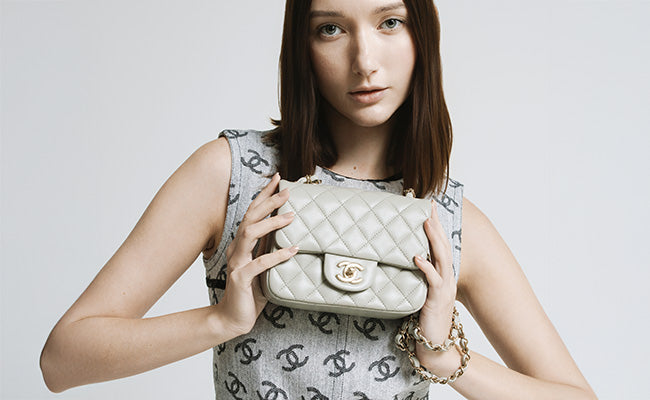
Inside Hermès BST Groups: How Moderators Police Authenticity and Resolve Disputes
Check out our Hermès collection and Birkin bags!
The world of Hermès buy-sell-trade groups feels like a club within a club. These online communities have come up with surprisingly complex systems for verifying authenticity and managing conflicts, especially when thousands of dollars hang in the balance over a single handbag.
Behind the scenes, dedicated moderators juggle roles as authentication experts and dispute mediators, crafting their own justice system to govern these high-stakes luxury exchanges.
Everyone’s heard stories about fake Birkins sold for eye-watering sums or deals gone sideways in the murkier corners of luxury resale.
What most folks don’t realize? These BST groups have evolved into well-oiled machines, with their own unwritten rules and conflict resolution playbooks that might make even seasoned HR folks raise an eyebrow.
When a single bag can cost more than a car, trust is everything. And in a world where members rarely meet face-to-face, keeping that trust intact is a daily challenge.
Whether it’s authentication headaches or payment snafus, these groups handle it all, while preserving the mystique and standards that make Hermès so irresistible.
Key Takeaways
- Hermès BST groups run as self-governing communities with intricate authentication and dispute resolution systems
- Moderators double as luxury goods experts and mediators, keeping high-value transactions on the rails
- Community protocols reflect Hermès' values but also tackle the gritty realities of online luxury resale
Understanding Hermès BST Groups
Hermès BST groups work as niche online spaces where collectors buy, sell, and trade authentic pieces, always with strict authentication at the core. Over time, these groups have grown from basic trading hubs into more sophisticated marketplaces, with moderators ensuring everything stays above board.
What Are BST Groups in the Luxury Market?
BST groups usually take the form of private Facebook communities, laser-focused on buying, selling, and trading luxury goods. Unlike the free-for-all of general marketplaces, these groups stick to specific high-end brands.
For Hermès collectors, BST groups open doors to pieces that almost never pop up in regular stores. Members can hunt for discontinued styles, limited editions, or bags with years-long wait lists.
What sets them apart:
- Brand-specific focus means you’re not wading through irrelevant posts
- Private membership keeps things exclusive
- Authentication is much stricter
- Prices reflect the high-end vibe
The setup looks a lot like other luxury BST groups, but with even tighter security. Hermès bags fetch premium prices, so authentication isn’t just a nice-to-have, it’s a must.
Members range from seasoned collectors to resellers and first-timers hoping to snag a dream bag. Waitlists for Birkins and Kellys are common, creating a brisk secondary market for those who don’t want to wait.
Evolution of Hermès Communities Online
Hermès communities online started out as general fashion forums. Early on, collectors gathered on sites like PurseForum and StyleForum, swapping tips on authenticity and sharing their knowledge.
Facebook groups changed the game. Suddenly, private trading communities could host image-heavy posts, comment-based claims, and tight admin control. Over time, these groups became more organized:
- Verification steps for new members
- Feedback systems to track reliability
- Standardized post formats
- Authentication protocols involving trained eyes
The Asia-Pacific region now brings in nearly 45% of Hermès revenue, showing how global these groups have become. Members span every time zone, so trading never really stops.
These days, Hermès BST groups run with almost military discipline. Admins enforce strict rules, and everyone knows their reputation is way more important than any single deal.
Why Authenticity Matters to Hermès Collectors
Authentication sits at the heart of everything in BST groups. Counterfeit luxury goods are everywhere online, so having real expertise is the only way to keep trust alive.
Hermès’ craftsmanship leaves behind specific clues, stitching, leather texture, hardware, date stamps, that trained eyes can spot.
Why it matters so much:
- Birkin bags easily top $10,000
- Rarer pieces can go for six figures
- One authentication slip could cost thousands
In most groups, professional authenticators charge $30-50 per check. That fee is a small price to pay to avoid a massive mistake.
Hermès authentication isn’t something you pick up overnight. The brand’s 186-year history means lots of design tweaks, changing date codes, and regional quirks. Members learn a lot just by participating, but tough cases still need a pro. So, there’s this hybrid system, community knowledge meets expert services.
The Role of Moderators in Policing Authenticity
Moderators in Hermès BST groups stand between buyers and clever fakes. They use sharp authentication methods and uphold the standards that keep both sides safe.
Key Responsibilities of Moderators
Moderators in these groups wear a lot of hats. Their main job? Pre-approving every listing before it goes public.
Top Hermès groups demand detailed photos from specific angles. Moderators scrutinize dust bags, receipts, and serial numbers, sometimes with almost forensic detail. They’ll check seller credentials and past transactions, too.
Authentication requests land in moderators’ inboxes daily. Members submit photos, and moderators approve or flag listings, usually pretty quickly, considering the stakes.
When authentication questions pop up after a sale, moderators step in to mediate. They’ll often bring in more experts. Their calls can make or break relationships in these tight-knit circles.
Detecting Counterfeits: Tools and Techniques
The authentication process leans on multiple checkpoints that trip up most counterfeiters. Moderators look at stitching, leather grain, and hardware under magnification.
Date stamps and serial numbers get extra attention. Hermès uses specific codes that change over time, so moderators keep databases to spot anything fishy.
Many groups use side-by-side analysis, they’ll compare questionable bags with known authentic ones, looking for subtle differences that a single photo might miss.
For big-ticket items (think Birkins or Kellys over $15,000), groups often require a third-party authentication. It’s just too risky otherwise.
Best-in-Class Practices Among Top Hermès Groups
The best groups use tiered moderation. Senior moderators handle tricky cases, while newer mods manage routine approvals. This keeps quality up and things moving.
Waiting periods are the norm now. New listings sit for 24-48 hours, giving multiple moderators time to weigh in. Rushed approvals usually end in regret.
Elite groups keep blacklists of known counterfeit sources and swap intel about shady sellers. This teamwork makes the whole community safer.
Ongoing education is key. Top groups invest in training sessions with Hermès experts and keep private channels where moderators share tough cases and new counterfeit trends.
Dispute Resolution Mechanisms in BST Communities
Hermès BST groups have built their own systems for handling member conflicts, from authentication arguments to transaction hiccups. Structured mediation and clear escalation paths keep things running smoothly.
Common Types of Disputes in Hermès Groups
Authentication challenges crop up all the time. Members question the legitimacy of bags, especially rare or odd-color ones that seem a little too perfect.
Pricing disagreements can get heated. Sellers might list bags way above or below what others think is fair. Arguments over whether an Etoupe Birkin 25 should match a Rose Sakura’s price? Not uncommon.
Transaction conflicts happen when deals go off-script, late payments, shipping issues, or undisclosed flaws can all spark disputes.
Condition misrepresentation is a big one. If a "pristine" Kelly shows up with scuffed corners, things get tense fast.
How Moderators Mediate Between Parties
Moderators step in as go-betweens when disputes flare up. They start by collecting evidence from both sides, photos, screenshots, transaction records.
Private messaging is the main tool. Moderators set up separate chats with each party to hear them out, then help open a direct line for resolution.
The focus stays on preserving relationships. Moderators don’t take sides; they guide everyone toward a solution that keeps the group’s peace.
Documentation is a must. Members have to show proof of their claims before moderators get involved.
Arbitration and Escalation Processes
If mediation stalls, things escalate to arbitration. Senior moderators or designated experts review the evidence and make the call, following the group’s guidelines.
For disputed items, expert authentication services often weigh in. Their opinions carry a lot of weight.
Escalation moves up the ladder: regular mods first, then admins, and, for the worst cases, group founders or outside arbitration.
Final measures can include warnings, suspensions, or permanent bans, depending on how bad things got. Groups keep detailed records to spot repeat offenders.
Negotiation Strategies for Resolving Conflicts
When authentication disputes pop up, members need ways to sort things out without burning bridges or losing money. Most conflicts resolve through direct conversation or a bit of structured mediation.
Direct Buyer-Seller Negotiations
Plenty of disputes get sorted out just by talking it through. The trick is keeping the focus on the authentication issue, not making it personal.
Start by acknowledging the other person’s view, without caving in. A buyer might say, "I get that you believe this bag is authentic, and I appreciate you sending extra photos to help clear things up."
Zero in on specifics. Instead of "this looks fake," try "the stitching pattern doesn’t match reference photos here and here." It keeps things constructive.
Time helps, too. Letting emotions cool for a day or two can make both sides more reasonable. Sellers usually open up when they see buyers have real concerns, not just cold feet.
Win-win options often show up when both parties care about their reputation. Maybe the seller offers a third-party authentication, or both agree to split the cost.
Moderator-Facilitated Communication
If talks stall, moderators step in to guide the conversation. Their mediation helps keep things fair and on track.
Moderators separate authentication debates from personal drama. Each side presents their evidence, photos, receipts, reports, without the emotional baggage.
The usual steps:
- Evidence review
- Expert consultation if needed
- Structured back-and-forth
- Finding a solution everyone can live with
Moderator-led talks work because they cut out the posturing and keep things civil. No one gets to derail the process with insults or distractions.
Timing matters, sometimes moderators call for a cooling-off period before bringing everyone back to the table.
Tips for Successful Outcomes
The best resolutions come when people avoid knee-jerk reactions. If someone questions your skills, ask for a break instead of firing back.
Keep records, screenshots, photos, written agreements. It protects everyone.
Stay flexible. Sometimes a return, partial refund, or extra authentication solves the problem. Don’t get stuck on one outcome.
Keep the lines open, even if things are tense. Sometimes, disputes resolve weeks or months later when things shift.
Lean on shared interests: Everyone wants a good reputation and smooth deals.
At the end of the day, good negotiation keeps relationships intact and upholds the standards that make these groups work.
Case Studies: Iconic Disputes and Resolutions
Some authentication disputes in Hermès BST groups become legends, shaping how the community operates. These stories show how moderators navigate gray areas and keep trust alive among collectors investing serious money.
Lessons from Notorious Authentication Disputes
The "Birkin 30 Gold Hardware Saga" stands out as a case everyone remembers. It started with a seemingly flawless Birkin 30, classic gold hardware, the works.
Red flags popped up:
- Odd stitching in the corners
- Seller reported hardware felt off
- Leather grain color looked just a bit different
Three authenticators couldn’t agree. One said real, one was suspicious, the third wanted more photos of the craftsman’s stamp.
The seller got defensive and refused to send more documentation. That’s when moderators stepped in, following their usual dispute protocols.
This case taught us even experts miss really good fakes. It also proved why multiple opinions matter.
Community Reactions and Social Dynamics
How members react to disputes sometimes says more about the group than the bags. The "Kelly 28 Controversy" showed just how fast sides form.
Moderators flagged a Kelly 28 as possibly fake, and suddenly the seller’s friends jumped in to defend her. The comments got emotional, not factual.
The group split:
- Defenders backing the seller
- Skeptics pushing for stricter checks
- Neutrals just wanting facts
What worked? Moderators separated evidence threads from support threads, keeping emotions and facts apart.
That case made it clear: clear communication and process matter when things get heated.
Takeaways for New and Experienced Collectors
These authentication battles have taught a lot to Hermès fans, whether they're just starting or have been collecting for years. It's tempting to think that if a bag costs a fortune, it must be real, but that's just not true, there are fakes out there that fool even seasoned eyes and command top dollar.
Key tips from real-life disputes:
- Always ask for photos from different angles before buying
- Check the seller's track record and community feedback
- Don't let anyone rush you into a decision, take your time
- Sometimes, you just need a pro to weigh in
Even experienced collectors have learned the hard way: nobody's immune. A trusted seller can end up with a replica by accident, especially if they're dealing with lots of inventory.
When authentication experts can't agree, it's usually safest to walk away. Protecting yourself, and the community's trust, is way more valuable than winning a risky deal.
How Hermès' Brand Values Influence BST Operations
Hermès' focus on authenticity, craftsmanship, and that air of exclusivity shapes how BST (buy/sell/trade) groups run. Moderators have to juggle upholding the brand's standards while keeping the secondary market moving. It's not always easy.
Impact of Leather Goods Strategy on Community Standards
Hermès' obsession with leather quality and old-school techniques sets the bar high for BST authentication. Every real bag has quirks and details that fakes just can't quite nail.
Moderators dig into everything: stitching, leather grain, hardware heft, stamp placement, you name it. They're basically channeling Hermès artisans with every inspection.
Because Hermès loves limited runs and seasonal changes, moderators have to keep up with all the little shifts, new colors, hardware tweaks, production quirks. It's a moving target.
BST groups end up as little encyclopedias of Hermès knowledge. Members trade info about rare variations and old styles, sometimes knowing more than the boutiques themselves.
Maintaining Exclusivity and Trust Online
Hermès' exclusivity spills over into BST culture. Most groups don't just let anyone in; they vet new members carefully.
Privacy's a big deal, too. Watermarked photos, minimal personal info, and screening buyers are all pretty standard. Discretion is just part of the game.
With bags costing as much as cars, trust is everything. BST groups build reputation systems that echo Hermès' own relationship-driven sales model. Stick around, build trust, and you get perks.
High prices for Birkins and Kellys add even more pressure. Moderators know their calls can affect huge sums, so they don't take authentication lightly.
Balancing Transparency with Discretion
Hermès does discreet better than almost anyone, and BST groups try to follow suit. Sure, transparency helps build trust, but there's a line, share too much about authentication tricks and counterfeiters catch on.
So, groups keep some details under wraps. It's a balancing act: help members learn, but don't give away the playbook.
Private messages and invite-only deals are common, mirroring Hermès' own sales style. Moderators keep an eye on things without making everything public.
Most groups would rather have slow, careful growth than let just anyone in. It means more hoops, but it also means a safer place for collectors who care.
Frequently Asked Questions
What are the telltale signs that a Hermès bag is the real deal?
Honestly, it's all in the details. Real Hermès bags have stitching that's almost obsessively perfect, with stitch counts that match up section by section.
The hardware should feel heavy and the color should be consistent, no flaking, no weird tones.
Date stamps and craftsperson stamps have to line up with Hermès' codes for the year. The blind stamp should be crisp, in the right spot, and match up with known production times.
Leather is a dead giveaway. Real Hermès leather smells, feels, and ages in a way that's just tough for fakes to copy.
How do moderators in BST groups tackle the situation when authenticity of an item is challenged?
If someone raises a red flag, most groups freeze the listing right away. Moderators usually pull the post within minutes to keep things from going sideways.
They'll ask for more photos, close-ups of stamps, stitching, hardware. The seller has to prove it's legit.
Sometimes, the group brings in outside authenticators. Many have connections with pros who can weigh in when things get tricky.
These conversations mostly happen in private. Moderators talk with the seller before making any public moves, which helps keep things civil and reputations intact.
Can we talk about the process behind a dispute resolution in these exclusive Hermès communities?
Disputes get handled with as little drama as possible. Moderators set up a safe space for both sides to explain what's going on, away from the public eye.
They want receipts, screenshots, photos, chat logs. Nothing gets decided without solid evidence.
Private channels help keep tempers down and reputations safe. Public fights help no one.
Outcomes vary. Sometimes it's a refund, sometimes an exchange, sometimes a compromise everyone can live with. Depends on the case.
What kind of expertise do moderators need to have to keep the fakes at bay?
Moderators need to know Hermès bags inside and out, styles, leathers, hardware, and even those obscure seasonal colors.
Many moderators dive deep: they get formal authentication training or spend years studying real bags and learning what makes a fake tick.
Knowing Hermès history helps spot weird anachronisms. If a feature didn't exist in a certain year, that's a red flag.
Connections matter. The best moderators have a network of experts and collectors they can call on for second opinions.
How do I navigate the BST scene to ensure I'm getting genuine Hermès pieces?
Start by researching the seller. Look up their past sales, check community feedback, and ask around.
Professional authentication is worth it for expensive buys. Even in trusted groups, people use these services for peace of mind.
Ask for detailed photos, don't be shy about requesting weird angles or extra documentation if something feels off.
Sometimes, the group itself matters more than any individual seller. Well-run groups with strong vetting and active mods are the safest bet for buyers who want the real deal.
What's the deal with penalties or repercussions if someone's caught peddling knock-offs?
Most often, people selling fake items get banned from groups right away. These bans usually spill over into other related communities, thanks to moderators sharing info and blacklists.
Some groups will call out sellers publicly to warn everyone else. It's a bit divisive, but honestly, it does help stop repeat scams, nobody wants to see the same trick twice.
In bigger cases, especially with lots of money on the line or repeat offenders, legal action sometimes comes into play. It doesn't happen much, but a few folks have chased civil remedies when they've lost a lot.
Word gets around fast in luxury resale circles. If you get caught selling fakes, your reputation takes a nosedive, and it's pretty much game over for joining high-end markets again.



